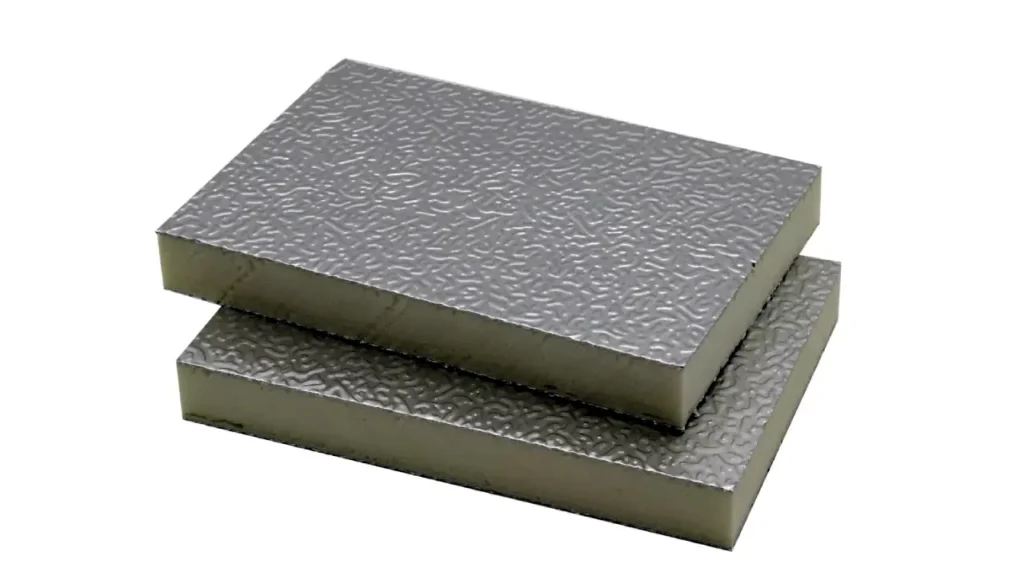When it comes to home insulation, many people overlook the importance of their HVAC system. Proper insulation for your ductwork is crucial for maintaining energy efficiency and a comfortable indoor environment. By preventing heat loss or gain, HVAC foam insulation ensures that the air you’ve paid to heat or cool actually reaches its destination.
This guide will walk you through the essential information you need to consider before installing HVAC foam insulation. We’ll cover the benefits, types of foam, and key factors for a successful installation, helping you make an informed decision that will lead to significant long-term savings on your energy bills.
What is HVAC Foam Insulation?

HVAC foam insulation is a type of insulating material, typically made from polyurethane, that’s applied to the ductwork and other components of a heating, ventilation, and air conditioning (HVAC) system. Unlike traditional insulation methods, spray foam expands to fill and seal any gaps or cracks, creating an airtight, continuous barrier.
This not only prevents heat loss or gain but also significantly reduces air leaks, which can account for a substantial portion of a home’s energy waste. By enhancing the thermal performance and airtightness of the HVAC system, foam insulation helps to improve energy efficiency, lower utility bills, and maintain a more consistent and comfortable indoor temperature.
Advantages of Using HVAC Foam Insulation
Using HVAC foam insulation offers a number of significant advantages that can improve the performance of your heating and cooling system and the overall comfort and efficiency of your home. It creates an airtight seal that fills and expands into every crevice, eliminating the air leaks that are common with traditional insulation methods. This superior sealing and high thermal resistance (R-value) lead to a substantial reduction in energy waste, lowering your heating and cooling bills.
The benefits of using HVAC foam insulation include:
- Moisture Control: Closed-cell foam insulation, in particular, acts as a moisture barrier, protecting your ductwork and home from condensation and potential water damage.
- Superior Energy Efficiency: By preventing conditioned air from escaping and unconditioned air from entering, the foam reduces the workload on your HVAC system, leading to significant energy savings.
- Improved Indoor Air Quality: The airtight seal acts as a barrier against dust, allergens, and moisture, which can lead to mold and mildew, thus creating a healthier indoor environment.
- Noise Reduction: The dense, rigid structure of the foam helps to dampen sound from your HVAC equipment as well as external noise from outside, contributing to a quieter home.
What Materials Used for HVAC Foam Insulation
HVAC foam insulation is typically made from various polymer-based materials, which can be applied as a liquid spray or as rigid boards. The most common type is polyurethane (PU) foam, which is created by mixing two chemical components that react and expand to form a durable, solid foam. Other materials include:
- Polyethylene (PE) Foam: A lightweight, closed-cell foam commonly used for pipe insulation.
- Polyisocyanurate (PIR): A rigid, closed-cell foam that offers a high R-value and excellent fire resistance, often used in pre-insulated duct panels.
- Phenolic Foam: Known for its high thermal performance and low thermal conductivity, it is a rigid foam with excellent fire resistance, often used in pre-insulated duct boards.
- Elastomeric Foam: A flexible, closed-cell foam rubber often used for insulating refrigerant lines and pipes due to its durability and resistance to moisture.
Where to Use HVAC Foam Insulation
HVAC foam insulation can be used in a variety of places to improve the efficiency and performance of your heating and cooling system. Its ability to expand and create a seamless, airtight barrier makes it a superior choice for a number of applications, especially in areas where traditional insulation is difficult to install or less effective.
Here are some of the most common applications:
- Air Sealing: HVAC foam is ideal for sealing gaps and penetrations where ductwork passes through walls, ceilings, and floors, creating a continuous thermal and air barrier.
- Ductwork: This is the most popular application. Spraying foam on the exterior of your ductwork prevents conditioned air from escaping and unconditioned air from entering.
- HVAC Equipment: Foam can be applied to key components like air handlers and condensing units to minimize heat loss and optimize their operation.
- Pipe Insulation: It’s used to insulate hot and cold water pipes within the system, preventing heat transfer and condensation.
- Attics and Crawl Spaces: These unconditioned spaces are where a lot of energy is lost. Insulating the ducts and sealing air gaps with foam in these areas can drastically improve efficiency.
Conclusion
Properly insulating your HVAC system with foam is a game-changer for your home’s energy efficiency and comfort. By sealing leaks and providing a thermal barrier, foam insulation dramatically reduces energy waste, leading to lower utility bills and a more consistent indoor temperature year-round. It’s a smart, effective upgrade that pays for itself over time through substantial savings.
The benefits extend beyond your wallet, contributing to a smaller carbon footprint and a more sustainable home. A well-insulated HVAC system also reduces the strain on your heating and cooling equipment, potentially extending its lifespan and reducing the need for costly repairs. It’s an investment in both your comfort and your property’s long-term value.
Ready to upgrade your HVAC system with high-quality foam insulation? Look no further. You can get wholesale HVAC foam from our trusted partner, Epsole. Their premium products ensure you have everything you need for a professional and effective installation, guaranteeing the best possible results for your home’s energy performance.
